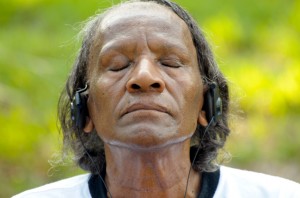Is therapy by podcast helpful and effective? Are there risks involved in popping on your earphones, putting your feet up, laying back on the couch, closing your eyes, and listening to a therapist, psychologist, or passionate podcast host speaking – seemingly – just to you? What happens when the podcast is over and the person you’ve been listening to is not there to gauge your responses, ask you how you feel, and answer your questions?
You might ask the same question about watching popular psychology television shows, reading self-help books, watching emotive movies, and attending large scale workshops and presentations. But is podcasting (and perhaps music) – where the use of earphones creates a different level of intimacy with the voice – more effective, more healing, more helpful, or potentially more dangerous?
This week I was invited onto a podcast panel to discuss Therapy in Podcasting. Andrew Johnstone, of Podcast Squared (2019: site no longer live), asked the questions and joined in the discussion with Paul R. Gilmartin of The Mental Illness Happy Hour and me.


